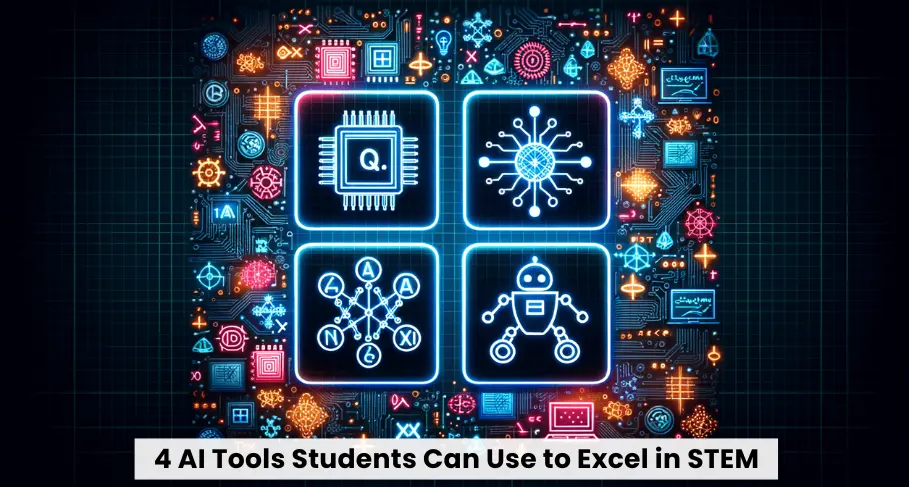As artificial intelligence sets out to repaint our society’s topography, its role in unlocking the personalisation of education and tutoring cannot possibly be overstated. Personal tutoring is, unarguably, the most effective pedagogical technique for students, but because of its inherent limitations on scale, it has simply been unattainable for the majority of students.
Today, that changes. With AI tools, we can now personalise education, provide individualised feedback, patiently solve doubts, and provide tailored guidance and mentorship at scale at a fraction of the cost. Let’s dive into 4 AI tools that are now available and are making this dream a reality.
Chatterbot AI
Chatterbot AI by English Chatterbox is India’s first AI-powered doubt-solving assistant for CBSE, JEE, and NEET. Designed exclusively for students for students from classes 1st to 12th, Chatterbot AI promises 100% accuracy in Maths, Science and other STEM subjects. Moreover, it comes embedded with every curriculum’s syllabus, so students can ask questions and receive personalised guidance and coaching.
What we love about Chatterbot AI is its emphasis on affordability, privacy and personalisation. Chatterbot AI is available at just ₹212 a month, making AI-powered education accessible to students from all over the globe without forcing them to pay an arm and a leg for one-on-one tutoring. Across all our experiments, Chatterbot AI politely answered all our follow-up questions, even when we were being super annoying. This marks a dramatic shake-up in the sphere of education, where students often feel embarrassed asking questions or raising concerns in group settings. Within the privacy of Chatterbot AI, students can ask any doubt they have, academic or otherwise, and receive warm, polite answers without any snide comments or taunts.
We were also impressed by the fact that Chatterbot AI could plot graphs and diagrams for math questions, which really made for comprehensive answers. Overall, we believe that Chatterbot AI, with its low price and excellent accuracy, makes for a great learning assistant for students from CBSE, JEE, NEET, and other such curricula.
ChatGPT Plus
The one that started it all: OpenAI’s flagship product, ChatGPT, which is unarguably the one product that sparked an entire generation’s interest in generative AI.
ChatGPT is the jack of all trades, so we put it to the test. We asked questions from everywhere: Science, Maths, SST, Hindi and even questions that had appeared in JEE and NEET.
And it was great, mostly.
ChatGPT was able to answer almost everything we asked. It was polite and helpful and gave us perfectly worded answers every time.
We’d just like to point out here that we performed our experiments with ChatGPT Plus, the paid tier of ChatGPT. The free tier isn’t useful at all for students or teachers because it’ll just give out answers that are wrong, and its overflowing confidence makes it really hard to figure out what’s right and what’s not. The paid version costs about ₹2,300 a month, which, in our opinion, is a lot.
Here’s where things went a little wrong. We asked GPT-4, OpenAI’s most advanced model, a question that has previously appeared in India’s most famous exam, JEE Advanced, and it didn’t even come close to a solution.
This made us a bit sceptical, so we started asking more such questions and quickly realised that ChatGPT isn’t so great at answering questions from classes 9th to 12th. It fails at solving complex problems, often takes the wrong approach, and frequently ends up with the wrong answer.
Overall, we would recommend ChatGPT for students in classes 1st to 8th, but if you’re in high-school or preparing for a high-stakes exam like JEE or NEET, you’d best steer clear of ChatGPT because it will go wrong, and it’ll go wrong with such swagger, that it’ll make you doubt your entire preparation and your books, and your teacher, and trust us, you don’t want that.
Khanmigo
Khanmigo comes from the house of Khan Academy, a world-class, free educational provider. We have tons of respect for Khan Academy’s vision, execution and mission, so it’s hard for us to review their AI-powered learning bot, Khanmigo, impartially.
Khanmigo first made waves in 2023 when Khan Academy announced its collaboration with OpenAI in the form of a one-of-a-kind AI assistant. Khanmigo is, in our opinion, amazing. While we believe it’s geared towards students in the US, a section of its features would benefit students in India, too.
We really enjoyed writing a story with Khanmigo, who coached us through each step of the writing process. It never gave away too much and instead coaxed us to write the next part ourselves, which can be extremely beneficial for students who wish to develop a knack for writing. If you love having spirited debates about topics, Khanmigo is the place to do it. The assistant can take on a persona, allowing you to debate and practice your knack to skillfully push your point forward.
Khanmigo is a brilliant academic assistant, especially if English literature and writing are where your interests lie.
Cognii
Cognii is a conversational ed-tech assistant that emphasises coaching over answers, akin to Khanmigo. Because it excels at assessments, that’s what we tried doing with it, and the results were good. Cognii allows students to answer questions and then gives personalised feedback based on the individual’s preferences. This marks a turn from conventional assessments, where students are left to fend for feedback on their own, dramatically reducing the efficacy of said assessments. While Cognii is great at assessments, we believe that it’s best used in addition to one of the tools we’ve mentioned above because of the inherent limitations in its scope and features.
AI is lighting up paths like never before, consistently showing us new ways to rebuild an educational system that works for all stakeholders: students, parents, and educators. With the advent of these AI tools, students can now benefit from the host of benefits that this AI revolution inspires and enjoy one-on-one tutoring without the burden of financial pressure.
